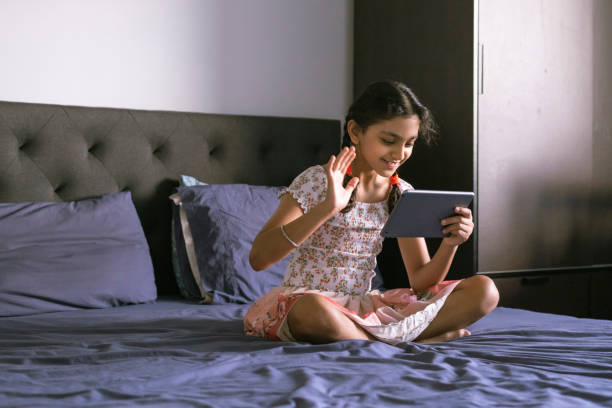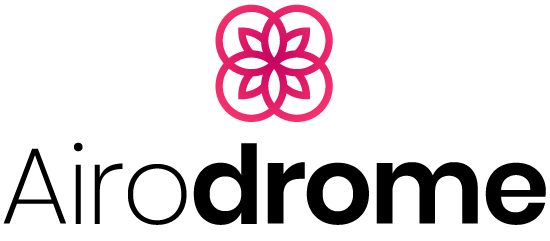Hotel Digital Transformation: 9 Ideas, Trends for 2024

Hotel Digital Transformation: 9 Ideas, Trends for 2024
technologies and digital solutions are stepping up in order to meet the new demands. Today’s hotels are working with a new customer, one that has adapted to the digital world and expects solutions from suppliers. Digital transformation in hotels is, therefore, no longer an optional process. This is no longer a nice-to-have – it’s a necessity to keep up with the times and meet both planner’s and guests’ expectations.
This blog will cover some of the ways you can embrace digital transformation in your hotel to maximize your group business. You’ll also learn how to accommodate safe events and meetings, as well as keep your guests happy for many years.
9 Hotel digital transformation trends and ideas you should know about for 2023.
1. Focus on technology to rebuild planner relationships.
Hotel staff shortages have done more than increase workload and pressure on existing teams. The issues have affected planner relationships. According to the March 2022 Northstar/Cvent Meetings Industry PULSE survey, planners have difficulty in planning because of a lack of staffing at hotels and venues. It is well known that the relationship between planners and hotels is crucial. Therefore, these issues are a top priority for any hotel struggling in this area.
2. Allow direct online bookings for small meetings.
Venues can offer direct online bookings to capture simple, small meetings. Smaller meetings are often organized by people who do not usually plan events. They want to make it as simple as possible.
Rich Matthes is a solution strategist at Amadeus. He says, “They want an easy button.” They want to be able to select a package with everything they need and where there are no surprises.
Imagine that a small meeting planner has looked at all of your venue photos, laid out the event using your diagramming program, and is ready to book. Your sales team may be busy pursuing larger and more complex events. Do not let small meetings slip through the cracks. Use a direct booking option on your website.
Matthes: “From a planner’s point of view, having meeting packages available on your website as well as making them bookable on the internet feels like an immediate digital call-to-action that they can implement.”
According to the report by meetingsbooker.com, venues spend an average of 47 minutes handling offline bookings. Direct booking technology streamlines and simplifies the planning process while saving your sales team time.
Simple meetings? Simple process.
3. Be mobile-friendly.
What is the one thing everyone has with them almost all the time? What’s the one thing that everyone has on them? Planners are not exempt. Their phones are their primary tool for conducting business, doing research, and planning events. They’re also looking at your emails and website on their mobiles. Your site and your communications could be losing out on business if they aren’t optimized for mobile.
John-Michael Jenkins is the director of product marketing for Amadeus. He says that mobile capabilities are a priority because most people book business on their smartphones. It has to be a part of the venue’s digital group strategy.”
Responsive design ensures that mobile-friendly emails and websites will display correctly on any screen size. With this mobile technology, guests and planners can check in and out as well as complete mobile payments directly from their phones.
If you’re looking to go a little further with your mobile capabilities, consider investing in a robust app. Mobile apps let guests and planners easily access booking options, room services, maps of hotels and destinations, chats with customer service staff, and other guest services. These apps can be used as room keys and for remote check-in/checkout. These apps allow for two-way communication between the planner or guest and the hotel. Planners can use hotel services at any time, while hotels can reach out to them with updates, notifications, and offers.
4. Use VR, AR and 3D tours.
Virtual site tours have become a standard feature for event venues. Robert Whalen, Director of Sales at Four Seasons Toronto, shared the game plan his team uses to sell virtual and hybrid spaces during Cvent CONNECT VITAL 2020. The goal was to collaborate with an A/V provider to create a high-quality virtual tour using video feeds from iPads and iPhones of staff. The planner can enjoy a sleek and clean visual experience.
Alternative options for site tours include augmented reality (AR), VR, and 3D technology. Planners can view these at their convenience. The tours can be viewed on any device without a VR headset. The planners can explore the event space freely and see a 360-degree perspective from their homes. Some VR and 3-D tours include videos that add an element of engagement and immersion and bring the space to life.
Has also developed a mobile application using AR. The app allows users to see how furniture will look in their homes using the cameras on their phones. This type of augmented-reality app can be helpful when the planner needs to see a room’s layout in real time without physically moving the furniture, tables, chairs, or stage.
Let us help you with your digital hotel transformation.
5. Create immersive virtual experiences with planners.
To be successful, hybrid events need the right technology on site. This is something that planners expect from you as a venue.
Ensure you have Wi-Fi and an internet connection that is only for the event. This means no other guests can access it. The planners will need to know that your connection is reliable and has enough capacity not to slow down or fail when streaming a live event. Make sure that everything runs smoothly by working with an A/V firm for the camera, mic, and lighting requirements and a vendor who will handle the live streaming portion. It’s possible that some planners already have their vendors, but it is always a good idea to establish relationships just in case. Consider having your technical team on-site to assist with any issues.
It’s more than just having the right team and equipment to support you. Hybrid events combine the physical event with the virtual experience. It is important to make the virtual experience as rich and engaging as the one in person. You can assist planners by designing a space that’s designed to engage on camera. Ballrooms are not ideal for virtual environments. Instead, think about how you can make your rooms more intimate and show off the planner’s branding.
6. Utilise diagramming technology.
Cvent Event Diagramming helps hotels and venues work with event professionals to design successful events. Upload your floorplans, show off your event space, and collaborate in real-time with planners to demonstrate how your property or venue is uniquely suited to meet their requirements. Turn planners’ visions into reality and:
- Showcase your space. Interactive Floorplans allow planners to visualize their event at your venue like never before.
- Deliver stunning site tours. Photo-realistic 3D will give planners the ability to realize their vision down to the finest detail and ensure that your property meets their exact needs.
- Collaborate in real-time. Invite planners, teammates, and other stakeholders to watch and comment live as you make changes to a diagram they can see from anywhere in the world.
- Design safer meetings. Automatically check layouts against customizable guidelines, add objects like temperature stations and social distancing signs, and much more.
7. Include interactive elements on your website.
To provide a memorable and user-friendly experience for planners researching your venue on your website, consider adding interactive elements. If you’re not sure where to start, think about the planner and what kinds of things they’d like to see on your website.
“Imagine you are the planner who will look at your hotel for an event,” says Matthes of Amadeus. “What will they see? What kind of information will they be able to get? Looking at what the experience is like through the lens of your customers is a really healthy first step.”
For example, on digital marketing expert and entrepreneur Neil Patel’s blog, instead of a simple filter or search box, he has an interactive filter. It says, “I want to learn about …” and users can select which topics they want to read about from a drop-down menu.
Another option could be having users complete a quick three-question quiz so you can offer them personalized content based on what they want to read about or direct them to the corresponding pages on your website. This can help with lead generation and segmentation, and it makes for a better user experience on your site.
As an example, the hair product company oVertone uses a short quiz to provide product recommendations for each customer. Their quiz asks a few questions about what your goals are for your hair, what type of hair you have, and what colors you’re looking for. They then provide a personalized list of their products that are applicable to you and will fit your needs.
While haircare is different than event planning, it’s easy to see how this kind of quiz can be utilized to discover the needs of the individual planners on your website and direct them to the content they want. Your hotel’s quiz could ask planners questions about what industry they work in, the size of their meeting, what kind of space they’re looking for, and what elements are most important to them, and then provide a recommendation of your available meeting spaces or amenities that fit their requirements.
8. Go contactless.
Four Sisters Inns implemented a messaging platform that guests can use to communicate with hotel staff and make requests, all in a contactless fashion. Other things like contactless payments, check-in/checkout, ordering room service, and mobile room keys can all be accomplished through a mobile app or online. Peppermill Casinos, for example, partnered with Agilysys rGuest Express for self-service check-in/checkout, restaurant reservations, room-ready messaging, and mobile room keys.
To create a safer working environment for hotel staff, providers like InvoTech Systems use RFID technology to offer contactless solutions for linen and laundry management. With this technology, staff can keep a safe distance from soiled linens and track the daily movement of inventory, so the storerooms are always well-supplied.
9. Implement smart technology within guest rooms.
Hotel Internet Services conducted a survey to determine how in-room entertainment and technology expectations have changed. Over 60% of guests surveyed said they would use voice control technology if present in the room, and nearly 70% would use it for in-room amenities like thermostats and light controls. In addition to this kind of technology, 67% of guests also want the ability to cast personal content from their own devices to the room’s TV.
To bring the contactless experience into guest rooms, Google and Volara partnered to enable hotels to run the Google Nest Hub. This allows guests to use voice commands to request amenities, control the TV, change room temperature, adjust the lights, and more. Several properties are already using this technology, like The Gale South Beach and Viceroy Hotels & Resorts.

